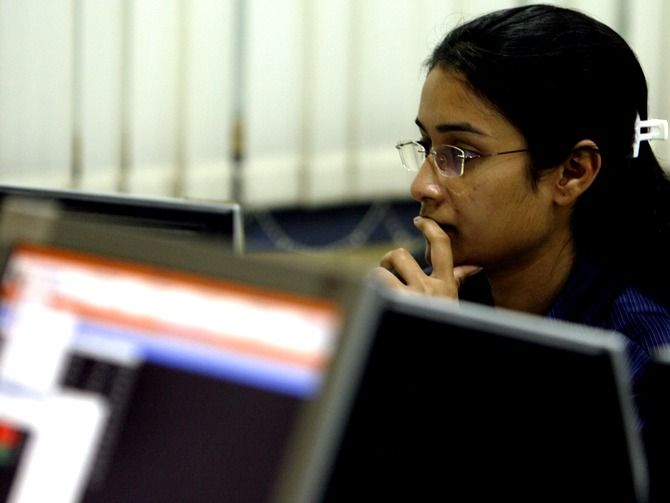Not a single Indian institute has made it to the top 30 in the latest QS World University Asia Rankings 2020.
Vinay Umarji reports.

Several leading Indian institutions of higher education witnessed a drop in the latest Quacquarelli Symonds (QS) World University Asia Rankings 2020, with not a single institute making it to the top 30, in comparison with their Asian peers.
While the best-performing Indian Institute of Technology-Bombay dropped one place to 34 over last year, IIT-Delhi dropped three to 43.
The other top three best-performing Indian institutes -- including IIT-Madras, the Indian Institute of Science, Bangalore and IIT-Kharagpur too fell in their rankings to 50, 51, and 56, down from 48, 50, and 53 respectively.
India has 96 universities ranked, including 20 brand new entries.
Only Mainland China is more represented than India, with 118 featured universities, including four in the top 10 this year, showing remarkably rapid progress.
Until five years ago, there was only one institution from Mainland China in the top echelons.
In contrast, India does not yet have a university among the top 30.
According to QS, India has embraced rankings more recently than most of its regional counterparts and in this fierce and relentlessly competitive regional landscape, it boasts eight universities among the top 100.
"The Indian higher education system has grown exponentially over the past decade. The number of universities has nearly doubled, and the number of colleges has grown by 50 per cent.
"The sheer scale of this development is awe-inspiring.
"Nevertheless, the domestic demand for tertiary education of its young population -- which is estimated to become the world's largest by 2030 -- is growing more rapidly than the expanded provision," said Ben Sowter, director of research at QS.
He added that sustained investment in research funding, teaching, and internationalisation was paramount to enhance India's competitive edge.
The contributory dataset of this ranking includes the world's most extensive surveys of global academic and employer opinion regarding university quality, accounting for the views of over 90,000 academic faculty and leaders, and over 44,000 hiring managers.
Overall, for the second consecutive year, the National University of Singapore has been named Asia's best university.
It is followed by Nanyang Technological University, which has risen from 3rd to 2nd; and the University of Hong Kong.
As for India, of the total 96 Indian universities featured in the rankings, including 31 among the top 250, 18 dropped, compared to last year, while 12 gained ground and one remained stable.
Further, ranking 32nd regionally, IIT-B is the best in the academic reputation indicator, which utilises the insights of over 94,000 academics regarding university quality, followed by IIT-D (34) and University of Delhi (50).
In the employer reputation indicator, which utilises the insights of over 44,000 employers regarding the quality of a university's graduates, IIT-B ranked 21 regionally.
India dominates the staff with PhD indicator with seven institutions achieving the perfect 100 score and sharing the top rank, including IIT-M, IIT-Kgp, IIT-Kanpur, IIT-Bhubaneswar, IIT-Indore, IIT-Patna, and IIT-Ropar.
- What do you think of the Indian education system? Share your views in the message board below!











 © 2025
© 2025